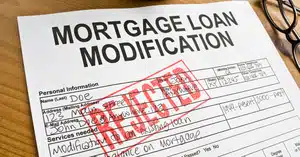
Non-bank lenders can help when the bank says no—but they’re not always the right fit. This guide walks through the pros and cons of non bank lenders NZ borrowers should weigh up so you can make a confident, informed decision.
Want the upside only? Read 4 Advantages of Non Bank Lenders in NZ. Or, if you want a direct comparison with banks, see our non bank vs bank home loans in NZ. This page focuses on both benefits and trade-offs.
Contact us for a chat if you want to learn more about non banks.

Non-bank lenders are specialist finance companies (not deposit-taking banks), that still follow responsible lending rules. They assess applications case-by-case and consider alt-doc income, recent credit repair, or non-standard situations. For the full explainer, see our non bank lending in NZ.
Specialists look at the full picture, not just one score. They’ll consider improving credit, alt-doc income (e.g., GST returns or business statements), boarder/flatmate income and other context a bank may overlook.
Where this often helps:
Outcome: Access to lending today, with a plan to become bank-ready over the next year or two.

Some products allow interest-only for a short period, short-term bridging, or rental-aware structuring. These can smooth cash-flow while income stabilises – provided there’s a clear review or exit point.
Smaller teams focused on mortgages can issue decisions quickly which are helpful for auctions, deadline sales, or short finance clauses. Some lenders offer rate locks that hold today’s fixed rate for approximately 30-60 days while you finalise documents.
For many, non-bank is part of a plan: To buy or refinance now, then tidy credit/financials, then refinance to bank pricing once he criteria are met.
Rates and some fees are typically higher because lenders take on more complexity or risk. Compare the total 12-24 month cost (interest plus all fees), not just the headline rate.
Establishment/broker/admin fees may apply: some loans include early-repayment or discharge costs (others don’t). If cash-flow is tight, fees are sometimes added to the loan-but that increases interest paid.
Many products are meant as temporary solutions until you’re bank-ready. You’ll need a realistic refinance plan and timeline.

Before you commit, your adviser will model:
A clear, numbers-first view keeps decisions practical.
See how Platinum Mortgages’ non bank lending services works, start to finish, since they play a vital role in helping property buyers with non-traditional income or recent credit repair. We’ll model bank today vs non bank today vs bank-ready later, then manage the application and structure so cash-flow works, without surprises.
Contact us for a no-obligation chat about your situation.
Angela is an accredited Financial Adviser, licensed under FSP742251 and has been in the Financial Industry since 2006. Our 5-star Google reviews reflect the excellent customer experience we promise — making your home loan journey positive, stress-free, and rewarding. At Platinum Mortgages, our clients are the reason we exist — so you can be confident every step is guided by genuine care and expertise.
